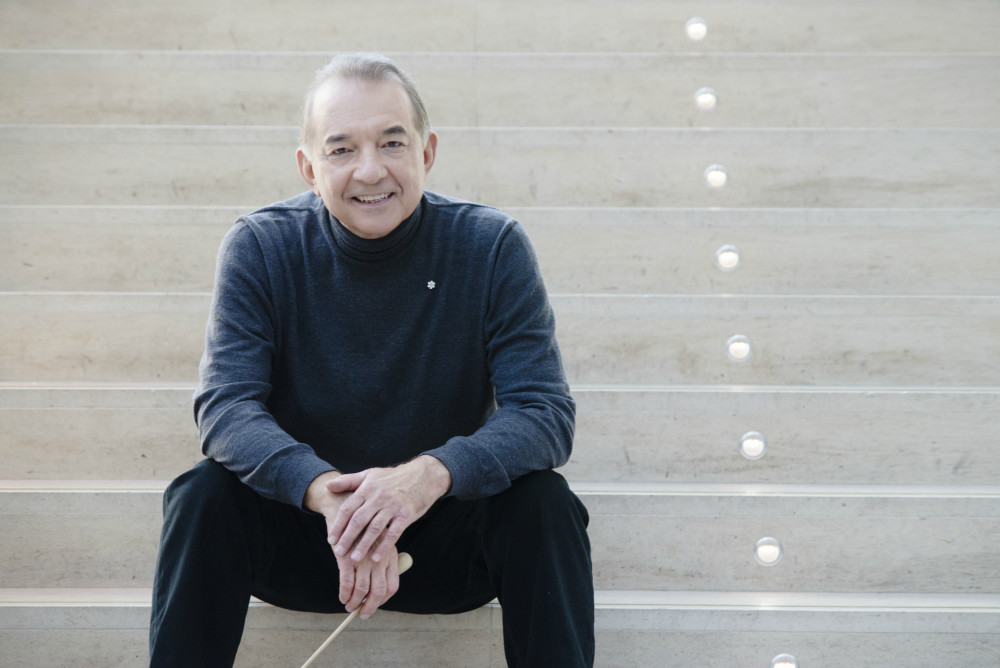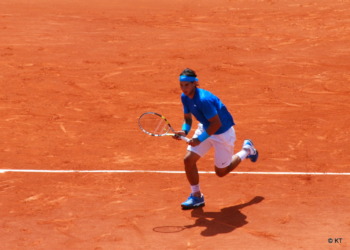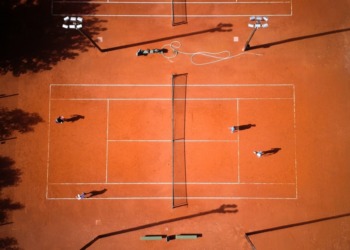Alex Pauk is a true innovator within the realm of Contemporary Classical Music. Having recently received the Order of Canada for his life’s work, as both a Composer and Conductor of Esprit Orchestra, now in its 35th year, Alex is relentless in his pursuit of new talent and works by living composers. When he’s not programming orchestral pieces, Alex is writing new compositions himself, always pushing the boundaries of this ever-evolving genre of music.
I recently had the opportunity to catch up with Alex at a boutique hotel restaurant, OCHO, in downtown Toronto.
Q: Let’s go back to your early training and university days. What were your key inspirations to delve into New Music?
Alex Pauk: All through my high school years I was leading bands, dance bands, jazz bands and, in fact, in high school formed a little orchestra. So, at that time I started to do a little bit of conducting. Later on in the late 60’s, I was studying music education at the University of Toronto, Faculty of Music. It was really good for me because I learned how to play most of the instruments in an orchestra. At that time, I also met a friend who got me involved with the New Music Ensemble at the university, which was coordinated by John Beckwith. Inspired by this, I started writing music in graphic notation form, shapes, blocks of shapes or dots and lines crossing, which would form the basis of my improvisational efforts.
At the same time, I also started an improvisation group that would meet every Monday night. I was improvising a lot and hearing all kinds of fantastic sounds that would not be typically heard in a notated score. These were then being performed by the classical ensembles at the university. Written notation at the time could be quite free and wild, you know, those were the early heady days of the late 60’s and into the 70’s.
These new sounds were really exciting to me, and at the instigation of Flautist Robert Aitken, I left to study in Japan. He put me in touch with Toru Takemitsu, a renowned Japanese composer, as well as, the conductor Seiji Ozawa.
So, I headed to the Toho Gakuen School of Music, just on the outskirts of Tokyo, in 1972. There, over a short period of time, I learned the basics of conducting technique, following the Ozawa methodologies. Upon returning to Canada, I moved to Vancouver where other projects would evolve.

In the photo: Alex Pauk composing Credit: Malcolm Cook
Q: Prior to the genesis of Esprit, you were involved with Arraymusic, in fact you were one of the founding members. How did that come about?
AP: Before I had left for Japan, there was a group of us composers meeting every week in my apartment to discuss politics, art, culture and social issues. This laid the groundwork for, what was then called, Array.
This was a composers group who figured nobody was going to actually play our music. It might just be too foreign to people’s ears. But then we took a leap of faith and organized a concert at Walter Hall, U of T Music Faculty. This marked the beginning of Array, later to be known as Arraymusic.
Around this time, the Toronto Symphony held a composition competition. Karel Ančerl was the conductor at the time, and I decided to submit something. In a white-hot flurry of time, not sleeping for a couple of weeks, I managed to write a complete orchestral work and entered it into that competition. It didn’t win. Yet, four years later, that work was premiered by Kazuyoshi Akiyama and the Vancouver Symphony Orchestra. This, I would say, was the first phase of my career.
Q: Who were your key mentors?
AP: One of my most influential mentors was the Parisian conductor-composer Marius Constant. He came to Vancouver to conduct the CBC Vancouver Orchestra. From my university days, I had been collecting every disc that he ever recorded. I was extremely interested in his music. I decided I had to meet him, and so I did.
We got to know each other in that week that he was there; but consequently, we became friends, and I was able to be around him each summer for five or six years, through the 70’s. That led to my being able to stay in his studio, which was below his apartment in Paris. He had a group in Paris, Ars Nova, which did all kinds of new music; he also wrote for the ballet, the opera, as well as for film. He was a really diversified guy who was also interested in jazz and other forms of music. I felt a really strong connection. So, until his death several years ago, we remained close friends.
When I moved back here to Toronto in 1980, I thought to myself that nobody’s going to do the orchestral music that I or my friends write. After all, it had taken me four years for that first piece to be premiered. So, I pondered the idea, “Hmm, maybe I can start an orchestra that does just that, bring contemporary classical to Canada.”
Q: How did Esprit Orchestra become a reality?
AP: I felt like an activist for new music. Bringing people together, forming alliances for the cause. But how was I going to raise the money?
In 1983, I was invited to The Arts Awards which the Financial Post was organizing. It was a banquet held in the unfinished lobby of Roy Thomson Hall. The concrete was still bare all around us, but the event was pretty fancy. My wife, Alexina Louie happened to be seated by an executive from Suncor. I was across the table with some other people. But he was talking to Alexina about how can Suncor more directly give money to the arts, as opposed to some other middleman-type group or organization. She pointed at me, and said, “Talk to that guy over there.” The following week, I was in the Suncor office talking to that executive, telling him my idea. And as luck would have it, he gave me the seed money to start Esprit orchestra.
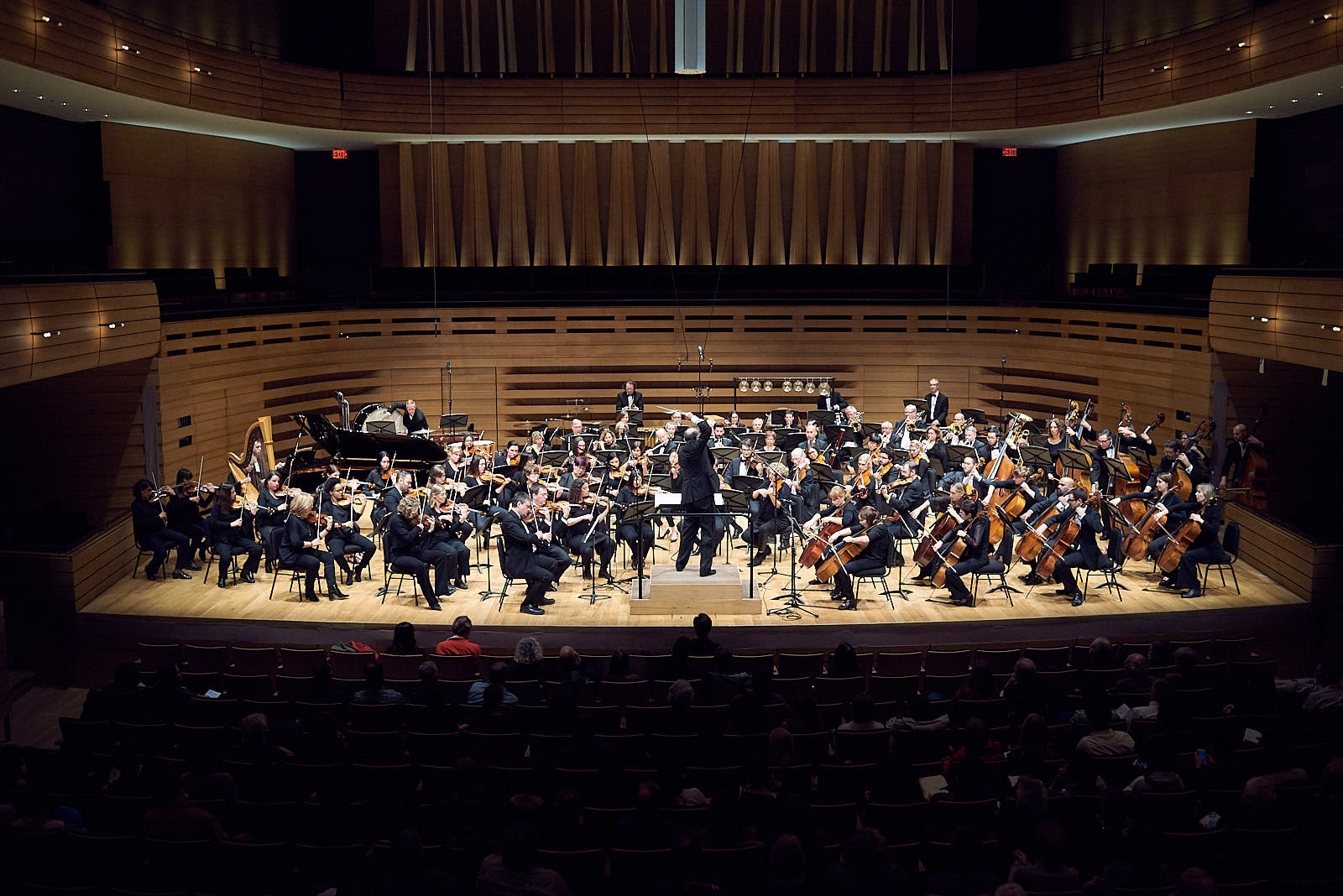
In the photo: The orchestra in full Credit: Malcolm Cook
Q: Where were you performing at the time?
AP: Well, the first concert was at Walter Hall in the summer of 83’. It was an exciting time! We performed John Rea, Brian Cherney and Serge Garant. These were the first Canadian works to be commissioned.
I had finally created a musical vehicle for Contemporary Classical. For now, I could commission primarily composers of my generation who were not being heard. Though it was not long before I was also programming my seniors, Somers, Freedman, Weinzweig, Norman Symonds.
We then moved to the Jane Mallet Theatre which everybody liked because of the steep rake, they could see the percussion section, they could see everything. At that time, David Jaeger had a show called Two New Hours on CBC radio. David’s budget originally was only for chamber music, new music, small events here and there. Once my orchestra was in place, he convinced his superiors to cover Esprit. His budget went up enough to be able to record our concerts. The whole country was getting to hear Canadian composers.
Q: How was it received by audiences?
AP: Small and loyal, you know, not huge audiences at the time. We didn’t have any marketing budget, nothing like that. But my contention was, and has always been, advancing the art of music and educating whoever is willing, whoever we can connect with about what we’re doing. But I think the radio broadcasts were really important, because that meant our audience was much bigger. Also, musicians got a little extra pay for the rights to have those concerts recorded. So, it was something cooking, mutually supportive to all. And we had recordings that we could use. They weren’t demos, they were paid for by the CBC.
I had started with my contemporaries and seniors; but around 1985, I began having little festivals for emerging, younger composers, the generation younger than me. The first one was called, The Weekend, which eventually became known as the New Wave Festival. It was fun. We had performances of young composers, while others could bring their scores and put them on a table for people to look at, talk about. I was also able to get the money to bring composers from across the country, young ones, who had never met each other before, so there was a kind of symbiosis created. I also had a forum with John Rea who would give the opening lecture of The Weekend. These young composers could come and meet David Jaeger, managers, producers, SOCAN, they could meet professionals in the field.
Q: Have you had to adapt your programming with the shifting of time?
AP: I’ve never given into that. I’ve only performed music that I thought was good music – had value in its placement in programs, that is intelligent, interesting, and engaging to both audiences and to the musicians. Always with the aim of offering something that’s known, or knowable, while continuing to stretch – and in that degree, we’ve played some of the hardest music that’s ever been written.
Related article: BEYOND THE GRACE OF MUSIC: INTERVIEW WITH GRACE NONO by CARMIE MALUBAY
Q: Tell me about some of the “hot” composers that you’ve chosen to feature, and why?
AP: Well, somewhere along the line on the international scene they’ve been recognized and had attention drawn to them in music festivals, some of which I attended, where I heard their music. I always have my antennae out all the time and I’m getting scores sent to me by publishers or by the composers themselves.
Luckily in some parts of the world governments are strong supporters of new music, such as in the Scandinavian countries or Iceland. This support generates strength in being able to develop as a composer, both in terms of training and the freedom not to have to worry about anything except for your art.
One such star is Daníel Bjarnason from Iceland. We’ve performed his works in recent years, to much acclaim.
Of course, then there are some composers who are just so strong and so good and determined that they set up their own world. Like Unsuk Chin, working in Germany, a country that loves music in all genres.
What it comes down to is that our programmes are also unique in the fact that we now bring music from abroad and place it next to Canadian compositions. I think this makes for an interesting mix. Our audiences also appreciate being able to meet the composers live during intermission or after the concert. They are given the opportunity to ask questions, explore the music further. Everyone’s experience of these works differs in perspective.
Q: How do you inspire the younger composers of our time?
AP: So that’s one, two, three generations I’d connected with. Now there’s a fourth that I’m working with, engaging with them as mentors for the Creative Sparks project. Creative Sparks focuses on the creation of new music by providing hands-on performance and composition opportunities for young people from diverse backgrounds and varying levels of musical ability. The program aims to improve artistic and leadership skills, and to develop an awareness of and appreciation for our contemporary cultural environment. Students are paired with a composer over a period of months, and guided in the creation of their own musical compositions. These pieces, many of wonderfully high quality, are then showcased each spring as part of Esprit’s New Wave Composers Festival. The music is performed by student musicians combined with members of Esprit Orchestra. Creative Sparks provides students with the opportunity to creatively engage with professionals in the field of new music.
One highlight to this programme is Eugene Aspapov. Astapov, who recently conducted his piece at our February 11th concert, was a participant of Esprit’s Creative Sparks Mentoring Program as a young high school student. He went on to study composition at the Juilliard and Eastman schools of music. Now a professional composer based in Toronto, Astapov has come full circle as a Creative Sparks mentor to students at his alma mater, the Claude Watson Arts Program at Earl Haig S.S.
It’s very exciting because Astapov has been acclaimed by The New York Times for the “richness of his harmony”. He has collaborated with many orchestras and ensembles in Canada, the U.S.A. and abroad, and has completed residences at international music festivals. Currently, he resides in Toronto and enjoys an ongoing relationship with Esprit Orchestra.
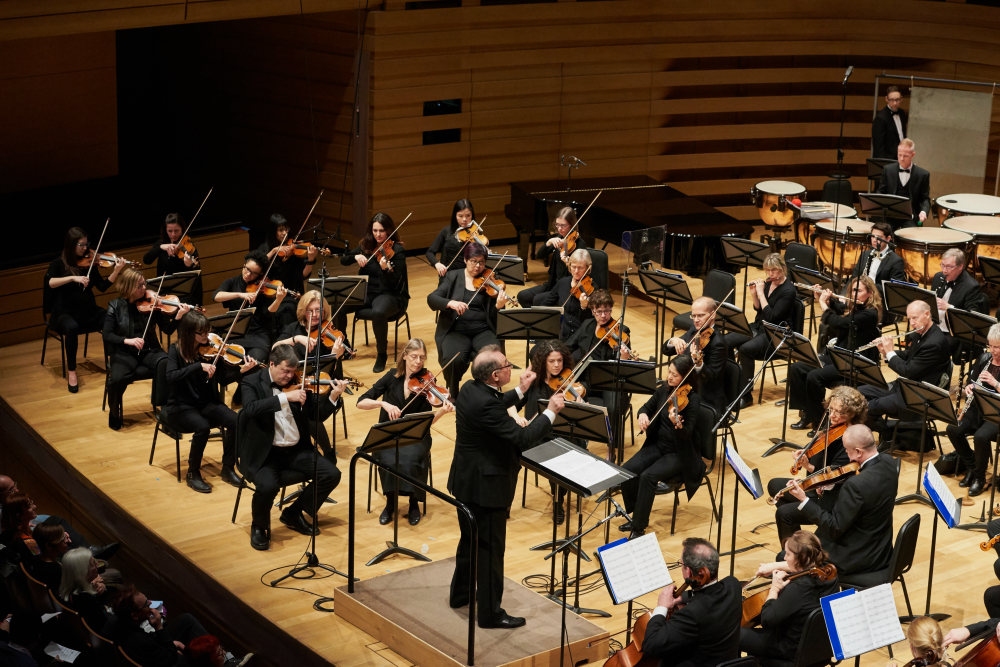
In the photo: Alex Pauk leading the orchestra Credit: Malcolm Cook
Q: In Canada and Europe, there are many orchestras playing mainstream classical: Mozart, Beethoven, Bach – and they are struggling. How does Esprit keep its competitive edge?
AP: In its genesis, Esprit showed people that you can viably put together new music on a concert program, and only new music. Subsequently, other orchestras started to have festivals of new music. Winnipeg New Music Festival for example, and then Toronto had one, and then Vancouver. Over the years, it has become more acceptable to play concerts of new music and Canadian works. But I like to think we kind of led the pack.
Having said that, I don’t believe we have the market cornered so to speak, but I don’t think there are other orchestras that are presenting the kinds of concerts that we do. However, in Europe there is far more experimentation taking place. New works are more likely to played, especially on the radio orchestras.
Q: Does Contemporary Classical Music appeal to certain members of the population, or is it universal?
AP: It’s always been my aim to cast a broad net, to include all generations. In those early days, in the late 70’s and early 80’s, new music seemed to be an underground event for certain young adult audiences, but not for Esprit. We’ve always engaged with people of all ages. I think that has to do with the programming leading you stepwise, into a deeper understanding and exposure to it.
In other words, you don’t have to be afraid of hearing difficult music that may be foreign to the ear, or feel the need to comprehend everything.
To be honest, I try and err on the side of wider appeal than say what a lot of hard core new music European festivals would give you. If I put together programs like that here, they wouldn’t work, there would be no audience. I would say I am sensitive to the needs and tastes of North American audiences, while still trying to stretch boundaries. The more we can expose people to this vast genre of new music, the better.
Editors note: The opinions expressed by Impakter.com columnists are their own, not those of Impakter.com.


